

Five Reasons Education in the Netherlands Works Well
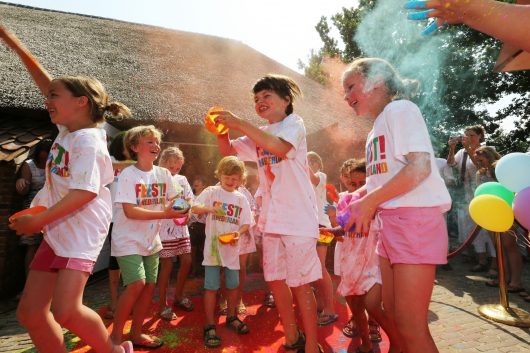
- Schools in the Netherlands give homework sparingly. In the U.S., elementary students are given more than the recommended amount of homework, which is time-consuming. Research has shown that play and exercise are vital to children’s growth and school performance. Dutch students under the age of 10 receive very little, if any, homework , which gives them time for daily exercise.
- Education in the Netherlands is fairly affordable. It is free for primary and secondary schools; parents need to pay for annual tuition only after their child reaches 16 years of age, and low-income families can apply for grants and loans. For university students, the average cost of tuition is about USD$2000 per year; in the U.S. it is close to $10,000.
- There are different types of classes Dutch students can take for secondary school before college. Students can take HAVO (senior general secondary education) or VWO (pre-university education) before they go to college. They can also take VMBO (preparatory secondary vocational education) if they do not want to attend college right away. This system allows students to work with a program that will accommodate their needs.
- Education in the Netherlands involves learning a second language. While American students usually start learning a second language in middle school or high school, some primary schools in the Netherlands teach English as early as Group 1, which is the equivalent of American kindergarten. All Dutch students learn English, but some schools require students to learn an additional language. There are even bilingual schools for every education level, where some classes are taught in English and others are taught in Dutch.
- The Dutch school week is different from an American school week. A school day in primary school usually takes place from 8:30 a.m.-3:00 p.m. on weekdays, but students go home for lunch instead of eating at a school cafeteria. On Wednesdays, schools dismiss students around noon.
The Netherlands puts its youth first when it comes to education. Young people demonstrably succeed in math and sciences while having a low unemployment rate. This, along with much more successes, places education in the Netherlands at the top compared to other countries. Other countries could learn from the Netherlands in how they put education first for their youth.
– Emma Majewski
Photo: Flickr
“The Borgen Project is an incredible nonprofit organization that is addressing poverty and hunger and working towards ending them.”
-The Huffington Post
Inside the borgen project.
- Board of Directors
Get Smarter
- Global Poverty 101
- Global Poverty… The Good News
- Global Poverty & U.S. Jobs
- Global Poverty and National Security
- Innovative Solutions to Poverty
- Global Poverty & Aid FAQ’s
Ways to Help
- Call Congress
- Email Congress
- 30 Ways to Help
- Volunteer Ops
- Internships
- The Podcast

Young Expat Services
Young Expat Services (YES) is specialized in helping families relocate to the Netherlands.
- 30 minute call
- School advisory report
- School packages & prices (age 0-18)
- School packages & prices (age 18+)
- How it works
- Returning to The Netherlands
- Presentations
- In school Dutch lessons
- Testimonials

Homework in Netherlands | Primary schools
Dutch school Homework: What parents need to know 🇳🇱
Are you moving to the Netherlands and curious about the homework culture in Dutch primary schools ?
This is what you need to know:
🎒 In grades 3 through 8 , most primary schools assign kids a ‘boekbespreking’ (book presentation) and a ‘spreekbeurt’ (presentation on a subject of your kid’s choice).
🎒 At most Dutch primary schools, kids will have regular homework starting from 6th grade (age 9) . This homework won’t be daily, but once or twice a week.
Dutch primary school homework is often something your child can do without your help .
However, should your child require help , and language barriers are a challenge, it is encouraged to communicate with their teacher to explore potential solutions.
Alternatively, you can also try to find a teenager in your neighborhood who is willing to help your child once a week for a small amount.
Please also read Bilingual schools in the Netherlands
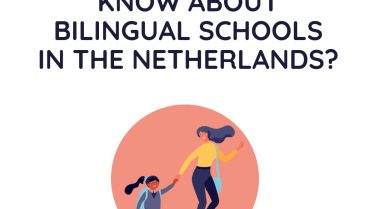
Bilingual schools Netherlands | What do I need to know?
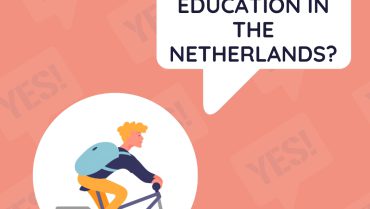
How much does education cost in the Netherlands?

The education system in the Netherlands
The education system in the Netherlands begins with kindergarten and, by the age of four or five, children have moved to Stage 1 -elementary school- where they will spend the next seven to eight years. Full-time education is compulsory from 5-16, and from 16-18 young people must attend some form of school for at least two days a week.
The education system in the Netherlands is overseen by the Inspectorate of Education which has the power to shut schools or to oblige them to modify their management or curriculum. There are, broadly speaking, three main types of schools:
- Public schools
- Special schools -which are religious rather than focussing on special needs
- General schools – which are not religious, or simply neutral
In addition, there are Islamic schools and a small number of private schools, which include around 150 international schools. There is no automatic moving up a grade at the end of each educational year. Retakes are common, in spite of the fact schools offer additional support and extra teaching to those children who are finding it hard to keep up with their peers.

Education in the Netherlands
Elementary school consists of eight grades, or groups, and at the age of 12 children sit the Cito test, or the School Final Test, to determine where their abilities lie and what kind of secondary school is most suitable for them. Parents and teachers are permitted to have a say in this decision, although parents do not always take advantage of this opportunity. Many educators believe that 12 is far too early to determine a child’s IQ and skills, and the system makes allowances for this, by ensuring there is an uncomplicated process for moving from one secondary school to another. Unfortunately, this does not take into account the fact that a child whose education has focussed on vocational training will inevitably lag behind their classmates when they change schools. Some estimates state that 40 per cent of children are placed in the wrong type of school. Equally, while children may be slow developers and need to go up the system, other children can be moved down if they cannot cope with the type of education they were assigned at the age of 12.
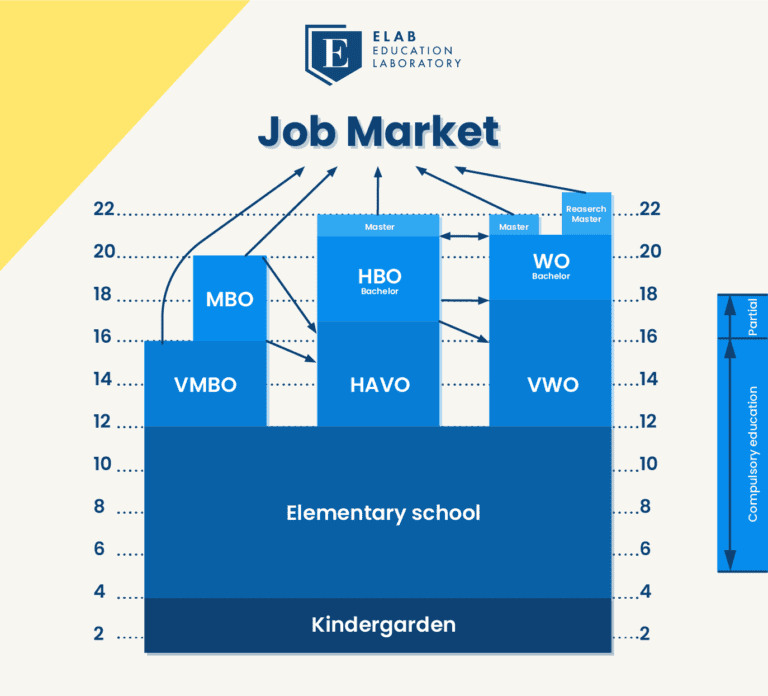
Education system in the Netherlands
Courses are taught In small classes and there is a strong emphasis on team and project work, as well as innovation and creativity.
The education system in the Netherlands – Secondary Schools
There are three types of secondary schools in the Netherlands.
VMBO schools provide pre-vocational education. Sixty per cent of Dutch children will attend a VMBO for four years. These schools teach the arts and sciences, languages, history, and maths, and provide a mixture of vocational and academic training . They have four streams, where the balance between the two types of learning differs:
VMBO-TL – mainly theoretical teaching and learning (academic).The theoretical learning path.
VMBO- GL – this falls halfway between the TL and KBL approach, see below. The mixed learning path.
VMBO-KTL – equal emphasis on theory and vocational practice. The middle-management oriented learning path.
VMBO-BBL – mainly vocational training. The basic, profession-oriented learning path.
HAVO schools are attended for five years and are the gateway to applying to Universities of Applied Sciences. These senior general education schools have five grades and students can apply to transfer to a VWO, which offers pre-university education. The schools follow a core curriculum in the three lower years, and then students can choose between four directions: science and technology; science and health; economics and society; and culture and society. HAVO students also take two subjects linked to the combination they have chosen and sit seven examinations in order to gain their school leaving diploma.
Both HAVO and VWO students have to take a number of compulsory subjects:
- Culture and the Arts
- Social studies.
VWO schools. Students attend their VWO school for six years and the VWO diploma is accepted for entrance to a research university. Certain schools, particularly those close to the border with Germany, teach up to half of their classes in German, while others teach a number of classes in English. Since VWO school programmes last for a year longer than those of HAVO schools, there is a greater emphasis on in-depth knowledge and preparation for studying at university level. After finishing the core curriculum, students choose one of the four subject clusters or profiles (see above) which are taught at a higher level than in HAVO schools.
The VWO is divided into two styles of programme: atheneum and gymnasium. Atheneum programmes include compulsory Latin and Greek . Certain schools also offer the VWO-plus, which teaches philosophy, research methodology and additional foreign languages. This is not an official school level and cannot be found throughout the Netherlands.

Understanding the Dutch Education System
Dutch universities are world-renowned for high quality teaching and research. Many degrees are taught in English and more than 100,000 international students choose to study in Holland every year.
Education in the Netherlands – Higher Education
Mbo- middle-level applied education..
This is the natural route of progression for students who have attended a VMBO and prepares students for a range of skilled trades or to play supporting role in a number of professions, such as nursing, engineering, architecture, criminology, or medicine. The MBO lasts for 1-4 years and runs at four levels:
Level 1 -assistant training, 1 year duration.
Level 2- executive training.2-3 years.
Level 3 – independent working, 3-4 years.
Level 4 -middle management -3-4 years. Students who have finished Level 4 can go on to enrol in an HBO or start working.
There are two types of MBO: apprenticeship training, where over 60 per cent of the course is practical and carried out in a working environment; or school-based education, where training takes up between 30-59 per cent of the curriculum.
HBO-Higher professional education
HBOs are also known as Universities of Applied Sciences.
HBOs are general institutions which specialise in specific fields, from agriculture to performing arts, game design and architecture to life sciences. Courses are taught In small classes and there is a strong emphasis on team and project work, as well as innovation and creativity. Unlike research universities, HBOs prepare their graduates for specific roles within the job market and have strong links with industry . HBOs constantly monitor the job market to ensure their graduates are meeting its needs and learning the skills which are most in demand. The focus is on problem-based learning , and work placements, both at home and studying abroad, are commonly offered as part of your course. Students usually go abroad after the end of the second year. These are not research institutes, unlike their WO counterparts, and teaching is hands-on rather than purely theoretical.
There are more than 40 Universities of Applied Sciences in the Netherlands and graduates are awarded degrees which cite their field of study. For example, if you get a bachelor’s studying nursing , you will have a Bachelor in Nursing, and not a BA or BSc.Courses usually last for four years. Similarly, if you pass your Master’s, which takes between 1-2 years, you will get a Masters in a specific field, e.g.: Master in Social Work, rather than an MA or a MSc. It is not possible to do a doctorate at an HBO.
Applications to universities of applied sciences must be uploaded between March and July. Admissions boards are far more interested in the number of hours you have spent studying a subject than simply a list of actual and predicted grades and will ask you to give a description of the subjects you have taken, and how long you spent on courses related to the field to which you are applying.
Among the most popular universities of Applied Sciences are:
- Hanz, Groningen
- Amsterdam University of Professional Education
- HU, Utrecht
- Avans , Breda/Tilburg/Hertogenbosch (named best University of Applied Sciences in 2021)
- Breda, Venlo/Hertogenbosch
Universities of Applied Sciences are not included in most rankings published abroad, and those which do exist are in Dutch.
WO-Research Universities
You can get your undergraduate degree in three years at a research university, whereas a Master’s takes between 1-2 years. The Netherlands’ research universities are very similar to traditional institutions of learning, found all across the world, with an emphasis on research and independent study. The table, below, provides an overview of recent rankings – but remember that the ranking of your course is just as important as that of the institution. Elab can provide you with detailed analysis of the best universities to apply to in the Netherlands, once you have chosen which degree you wish to study. The choice is wide, since at present there are over 370 undergraduate courses taught in English in the Netherlands, and 1500 at Master’s level.
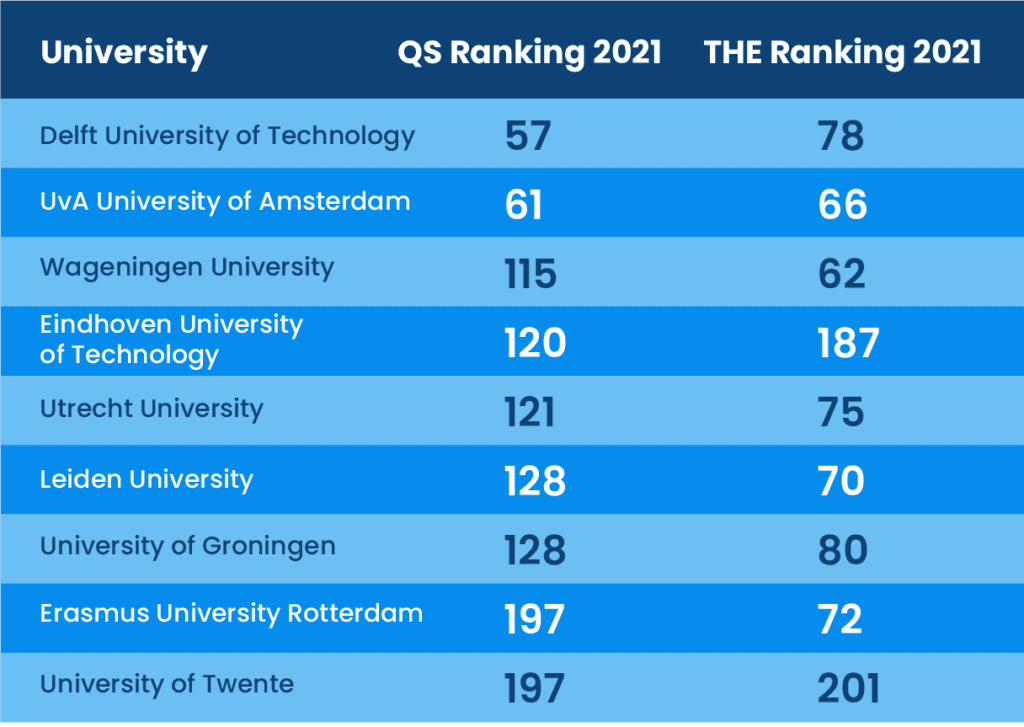
The education system in the Netherlands: Applying to university
The application process is centralised through the Dutch admissions system, Studielink.You will need to provide some, or all, of the following documents:
- Academic transcripts
- Passport or ID
- Up to four photographs
- Proof of English language proficiency (IETS 6+, CAE grade C etc)
- An essay or a personal statement
- Proof of finances – if necessary.
Each applicant is allowed to apply to four courses a year, but only two of these can be “numerus fixus” – limited number courses. If you do wish to be considered for a numerus fixus course, your application has to be submitted by 15 January. You will be given a number and place in a queue , based on the information you have provided, and will go up the list if other applicants drop out or reject the place.
I May is the general deadline, although certain universities are more flexible and accept applications uploaded after this date.
The education system in the Netherlands -Tuition fees and living costs
EU citizens pay the statutory tuition fees, which were approximately 2168 euros in 2021-2022, and are expected to be 2209 in 2022-2023. At present the Dutch central government is offering all first-year undergraduate students a 50 per cent discount on their tuition fees, as a result of the pandemic. Non-EU students pay the institutional fee, which is far higher.

How expensive is it to live in the Netherlands?
An average room in Holland costs somewhere between € 300 and € 600 a month. The costs depend on the city where you study, what is included in the rent and the arrangements made by the institution.
A recent poll of students in the Netherlands broke down their monthly expenses (in euros) as:
- Food 180 euro
- Accommodation 350-800 euro
- Tuition 200 euro
- Insurance 80 euro
- Clothing and entertainment 100 euro
- Books 50 euro
It has been estimated that studying in the Netherlands costs in the region of 1000 euros a month, inclusive of tuition fees – a very reasonable sum. And, of course, you are entitled to apply for a range of financial grants and loans.
Financial help to study in the Netherlands
All EU citizens are entitled to apply for the Collegegeldkrediet , a loan to cover tuition fees , as long as:
- You are under 30 years old
- You have a Dutch bank account
- You have a BNS, a national social security number which you will get once you register your permanent address in the Netherlands. The BNS is essential for all types of administrative tasks, from getting a mobile phone contract to finding work. The process is straightforward
You cannot apply for the loan until you have received a confirmed offer of a place at a Dutch university, and up to 31 January in that academic year.
You can also apply for the Studiefinanciering grant if:
- You work in a registered job. Do not assume this will be easy, since Dutch employers prefer their staff to speak Dutch, so if you have the time and motivation, it would be extremely useful to pick up at least a smattering of Dutch before you leave for the Netherlands. Put your summer break to good use!
- You register for income tax and national insurance – even though you will not pay these, as a student, unless your earnings are very high.
- You work at least 56 hours a month, 12 months a year. This stipulation is often overlooked by students, who assume that they will still be able to have a Christmas break back at home and a six-week summer holiday. This is not the case, if you want to keep on being eligible for the grant.
- You can apply for the grant three months after you have started working, no earlier, since you will have to produce three months’ worth of payslips to submit the application for financial aid.
Application process
Elab will take you through the process of applying for the loan and the grant ,and explain repayment schedules, how much you are likely to be given per month , etc. Call or email Elab for further information or estimates of how much financial help you are likely to be offered .
Click one of our contacts below to chat on WhatsApp
Stai cercando informazioni sulle università all'estero? Hai trovato il posto giusto! 🤓
- NETHERLANDS
- SWITZERLAND
Education Articles

Dutch schools: What to expect when you go “local”
Young Expat Services (YES) are educational specialists, helping families relocate to the Netherlands. YES can help you with finding the right school for your child(ren), whether it's a local school or an international school.
You’ve decided that your children will attend a Dutch school. Often, parents make this decision because they want to stay in the Netherlands for longer period of time and integrate into Dutch society. We can imagine it’s a bit scary to put your child in a school without you or them having any knowledge of the Dutch language.
We can also imagine you have loads of questions about this process like: What will happen that first period? Are we able to help them with their homework? How will they learn Dutch? In this article, we will tell you more about the process of “going local”.
But first, why do nearly half of all internationals in the Netherlands choose local education? Well…
- There’s a greater selection of schools to choose from
- They allow your child to integrate more easily into the local Dutch community
- According to the OECD, Dutch education is of high quality
- Dutch schools receive state funding, making them more affordable (schools typically only ask for a parental contribution)
The importance of being fluent in your first language
Mother tongue development is the foundation for further language acquisition. Knowing and fully understanding a first language is essential for transferring and applying knowledge and understanding to a second and third language. The best thing you, as a parent, can do is to expose your child to your native language as much as possible. For example, read your child a bedtime story in your first language.
2-4 years old: Preschool
If your child attends a preschool, he / she will be exposed to Dutch two to four times a week. This depends on the city you live in; all cities have their own policies. Preschools work with special language programmes. These programmes are usually based on themes. Different themes offer a different vocabulary. Children will sing songs, make arts and crafts and other activities around this theme.
In the bigger cities, most preschools have a lot of experience with children whose mother tongue is not Dutch. For children who were born in the Netherlands but do not speak Dutch, this will be the first official moment where they are exposed to Dutch. Research has shown that Dutch preschool is effective in developing the Dutch language skills of a child.
4-6 years old: Local Dutch school
Generally, at this age international children can be enrolled in a local Dutch school even though they don’t speak any Dutch. Children aged four to six learn by playing. In school, they will be immersed by Dutch five days a week. Just imagine how much you will learn if you’re exposed to Dutch five days a week.
On average, your child learns around 15 new words per week. In the beginning, he / she will only listen. This is called the silent period. It depends on a child’s character as to how long this period will last. For some children, this silent period can last longer than other children, you might worry that your child will never speak Dutch, and suddenly, almost full Dutch sentences are spoken! The advice of Young Expat Services (YES) : give your child some time and trust that it will all work out.
There are also children who mix up their mother tongue with their Dutch. Don’t worry, after some time they will know how to distinguish between Dutch and their first language.
6-12 years old: Dutch immersion classes / Newcomer’s classes
Newcomer’s classes are available at many schools in the Netherlands, specialising in education for six to 12 year olds who have just arrived in the country and do not yet speak Dutch. Newcomer’s classes can be either a separate school or a class within a school.
Newcomer's enrolment procedure
Pupils can be enrolled at any time of the year. Contact the school to make an appointment. In some regions, children can attend a newcomer’s class from the age of four but most cities enrol from the age of six.
Children spend approximately one year in the newcomer’s class. After this, they join their local Dutch school, usually attending the same class as other children of their age. Some newcomer’s classes request that you apply to a local Dutch school first, as this will be your future Dutch school. Policies can vary per city. Please check the policies for your region.
Dutch immersion classes
In most cities, there is only one language school. This might mean that the school is located far away from your house. In small villages, Dutch immersion classes are not available.
In a language school, your child is amongst children from all over the world. The children have different backgrounds, and there is a difference in educational development. Children will follow an individual programme. These classes usually have around 15 children per class. The focus is on learning Dutch but also maths, gymnastics, art and music are taught.
The goal of these language schools is not to become fluent, but to understand enough Dutch to participate in class. Older children need to learn a wider vocabulary. Usually after one year of immersion class, younger children will attend the same class as their age group. Older children might have to retake a year.
A Dutch six-year-old child knows about 3.000 words. Every year, at least 2.000 are added to this. So, you can imagine it takes more time for an older child to participate in lessons and grasp the topic at hand.
In a Dutch school, homework is not common. From the age of 11, around one hour of homework per week can be expected. The child is capable of doing their homework by themselves. If they need help, you can always ask a Dutch teenager to help your child with their homework, for example with the reading.
12-18 years: Secondary language classes
From the age of 12, children who are new to the Netherlands and don’t speak any Dutch are placed in a secondary language class (Internationale Schakelklas, ISK). After enrolment, the child will be tested by the school so that they can be taught at an appropriate level. Students stay in an ISK class for approximately one to two years. On average the children retake a year (or two years for older children).
Enrolment procedure
Pupils can be enrolled at any time of the year. Contact the school to make an appointment. The student must also be present for enrolment. Based on age, history of schooling and capacity, an individual plan will be developed.
Video: School system in the Netherlands
For a summary of the Dutch school system, watch this video produced by Nuffic, titled “School system in the Netherlands”:
We hope this article has given you a better understanding of the Dutch immersion process. It is a big step, but remember, bilingual children enjoy many advantages.
Succes met het leren van de Nederlandse taal (Good luck with learning Dutch)!
Young Expat Services provides educational consultancy, assistance in finding the right school, Dutch lessons for your children and support with the integration of your family into Dutch society. All YES employees have lived abroad as a child or later with their own families. So they know the "feeling" of leaving your home country and having to adjust to a new culture.
Contact Young Expat Services now
For more information on how Young Expat Services can be of service to you and your family, please fill in this form.
After clicking submit, the information you have given will be shared with the author / business partner in line with our Privacy Policy

Eline Hausel
Owner Young Expat Services at Young Expat Services
JOIN THE CONVERSATION (2)
Leave a comment

Eman Khattab 09:21 | 17 July 2018
Hi, what is the average cost of preschool and daycare? Thanks
Gisele Dantas 15:05 | 23 July 2018
Please. Let the parents know that all the local public schools have more or less the same score, but does not mean they are the same level in education. I choose my 5 yld dauther school blind, and I realise later that how much your kid will be challenged at school can change dramatically from neighbour to neighbour. Talked with other parents, specially if your kid like challenges at school. Because not speak dutch doesn't mean he/she is not good in math, and some times because they are not good in Dutch, some schools think they are bad in everything, and just give then very low education.
Your guide to living, working and studying in the Netherlands
Business directory, the dutch education system.
The Dutch education system is totally different to that of a country like the UK! In the Netherlands, there are several educational paths a child can choose to pursue. What’s more, kids begin to be directed down one of these academic routes very early on in their lives. If you are moving to the Netherlands with children, read on. We will explain how the primary and secondary education systems work here, and how young expats can adapt to them.
Primary Education in the Netherlands
Primary education in NL works as follows:
- In the Netherlands, children attend primary school from the age of four and until they are twelve
- They spend their first two years in kindergarden
- In their final year, pupils are advised on which type of secondary education they should pursue
- This advice is based largely on the ‘ leerlingvolgsystem’
- This is a monitoring system, which is used to register the achievements of pupils throughout their time at elementary school
- An aptitude test is also used to determine which type of school they should move on to. It is often referred to as the ‘ CITO-toets ‘ , in Dutch
Secondary Education in the Netherlands
Secondary school education is where matters begin to get complicated in the Netherlands! This diagram illustrates how it works:
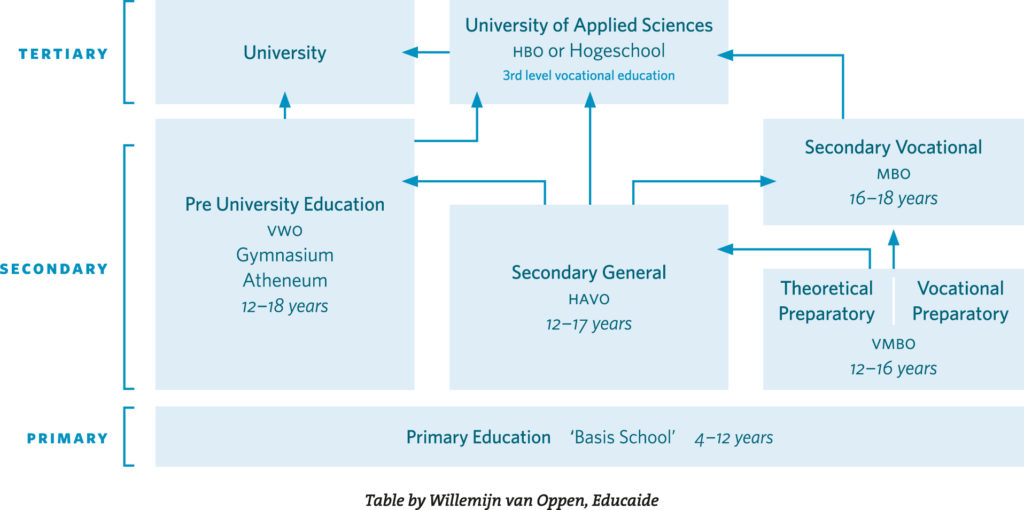
Let’s explain Dutch secondary education, in more detail:
- There are three types of secondary school pupils can choose from, once they have completed their primary school education
- All three start with a sort of ‘basic package’
- Usually, it lasts two years and consists of general subjects that all students follow
- The first year is called the ‘ brugklas ‘ . In English, it is referred to as the ‘transition class’
- At the end of this year a final decision will be made, regarding the type and level of secondary education with which a student will continue
- This gives pupils one year to demonstrate the level at which they are capable of performing, and to think about which kind of schooling they wish to pursue
- In some secondary schools, this decision is made after two years
Educational Acronyms in NL
The different types of education in Holland go by the following acronyms:
- VMBO is ‘Vocational Secondary education’
- It lasts four years
- VMBO caters for students of varying levels and abilities
- Depending on how well they perform at VMBO, a pupil might have the option of going on to attend a ‘HAVO’. You can find an explanation of HAVO education below
- Another option for them is to progress to a ‘Senior Secondary Vocational Education and Training Institution’. This type of institution is called an ‘MBO’ or a ‘ middelbaar beroepsonderwijs ‘, in the Netherlands
The other two forms of secondary education grant their pupils admission to higher education :
- HAVO lasts five years
- Pupils are enrolled according to their ability
- HAVO-diplomas prepare students for admission to a university of applied sciences. These are known as ‘ HBOs ‘ in the Netherlands
- VWO lasts six years
- VWO is considered to be a more rigorous educational path than HAVO
- The curriculum prepares pupils for a ‘ WO ‘ university
Many secondary schools offer a mixed transition class. They might, for example, have a VMBO/HAVO or a HAVO/VWO.
Dutch School for Expat Kids
In Dutch schools lessons will be taught, unsurprisingly, in Dutch. Non Dutch-speaking four and five-year-olds usually acclimatize to this pretty easily. Still, just because your child is six years of age or older, it does not mean that he or she cannot be enrolled in a Dutch school .
Unsure about which kind of school is right for your kids? Take a look at our ‘Useful Links’ box at the bottom of this page. It lists several other xpat.nl pages, which offer further advice on this matter. Our article about learning Dutch in the Netherlands might be of interest to you as well!
Dutch Immersion Classes
Many Dutch schools ask that their pupils attend a Dutch immersion class:
- Dutch Immersion classes are called ‘ schakelklas ‘ or ‘ nieuwkomersklas ‘ in the Netherlands
- After approximately one year of attending an immersion class, a child should be able to transition to a regular Dutch school
- When possible, he or she will be enrolled in a class with other children of a similar age
- Some schools have their own, internal newcomer classes. Usually, however, this is only the case at specialized schools
Immersion Classes Post Primary School
There are secondary level Dutch immersion classes too:
- ‘ Internationale schakelklas ‘ is the Dutch phrase used to describe them
- Some cities also offer a ‘ kopklas ‘
- This class is designed for highly-motivated children, who have finished primary school with high grades for math, but much lower ones for the Dutch language
- The Kopklas is intended to help these pupils to follow a higher level of secondary education
- Often, this is against the initial advice of their high school
- If they have reached a high enough academic level after attending kopklas for one year, they will be admitted to a more demanding secondary education program
- International education in the Netherlands
- Special education in the Netherlands
- Schooling for Expat Kids in NL
- International Schools in the Netherlands
- Local or International School in NL?
Find further information through the following organizations:
- Educaide : International Education Solution House
- MBO Raad : Organization of Secondary Vocational Education
- IVETA : International Vocational Education and Training Association
Recently Posted on XPat.nl
- The Difference Between a Resume and a CV
The Holland Handbook 2024
Dutch taxes.
- Dutch 30%-ruling Tax Facility
The UnDutchables 9.0
- This is your checklist for moving to the Netherlands

It is that time of year again; the new and annually-updated version of The ...
> READ MORE
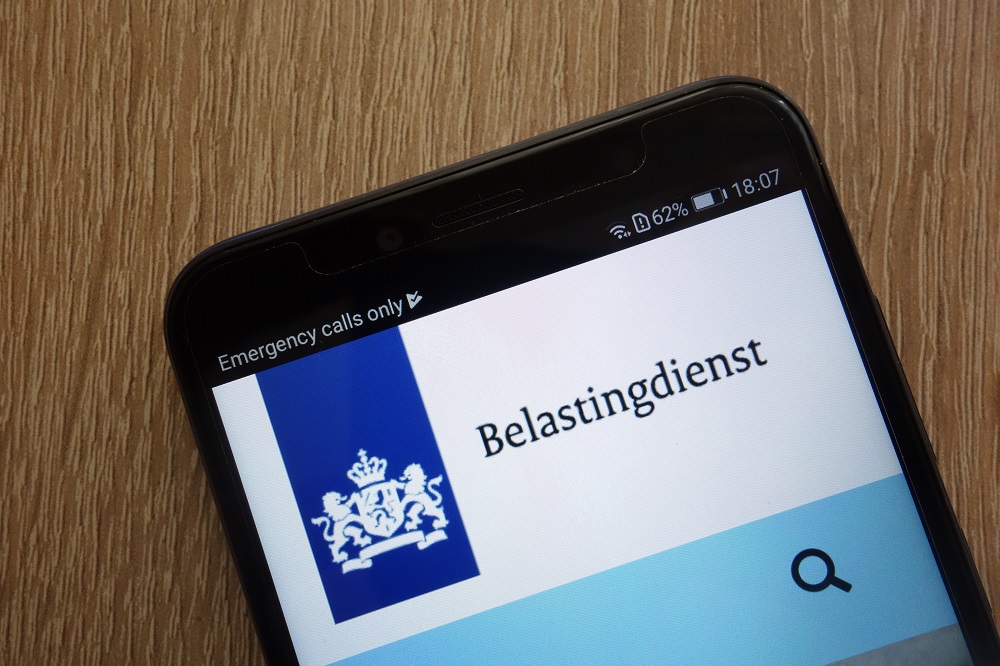
Taxes are always complicated. If you have moved to the Netherlands from another country they ...

Following the legendary previous eight editions of The UnDutchables, the 9th edition of this all ...

Making the most of your Dutch home
Whether you are renting, staying in a long-term AirBNB or have just bought a ...

Gift giving in the Netherlands-all ...
If you feel like skipping your birthday, you may be in for a challenge when ...

10 things you will find in every Du ...
The Dutch are very fond of houseplants, the more the merrier! You will find the ...

Obtaining a Mortgage as an Expat in ...
Obtaining a mortgage as an expat in the Netherlands can be a complex process, as ...

Help me move to the Netherlands!
Obviously, the decision to move to the Netherlands is not one to be taken lightly ...
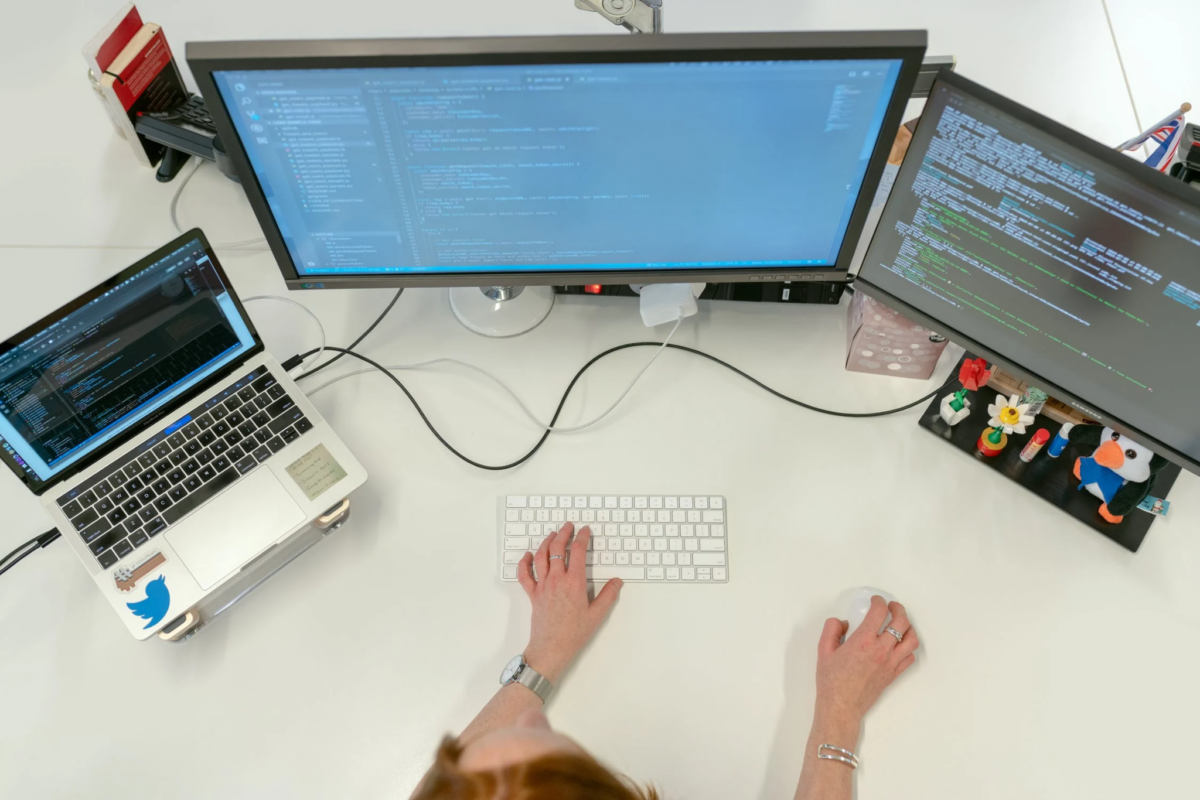

The Impact of Technology on Educati ...
Education is unending and pivotal in society. Technology is one of the most dynamic entities ...

Five Renovation Tips to Increase yo ...
Learn how much home renovations cost – and which repairs increase the home value, and which ...
20 Netherlands Education Facts (all about schooling in The Netherlands)
Did you know that the Dutch were the best non-native English speakers in the world? Or that a regular school day in the Netherlands ends at 3 PM?
Discover more thanks to these 20 interesting facts about schooling in the Netherlands ! 🇳🇱 🎓
TABLE OF CONTENTS
The Best Facts About School in The Netherlands
Dutch school hours, general facts about schooling in the netherlands, more education facts, the full list of 20 dutch school facts.
The Netherlands is a small lowland country. It is located in western Europe, and it also has territories in the Caribbean. Its capital city is Amsterdam, which has a bit more than 872,000 inhabitants.
An interesting part of the country that I wanted to tackle is its education. In light of that, I have listed my 20 best facts about the Netherlands education system, and I hope you will love them:
1. There are bilingual primary schools in the Netherlands
Because of how important the English language is nowadays, the Dutch government has decided to try using bilingual primary schools .
Even though most primary schools still teach in Dutch, these bilingual primary schools teach in English for about 30 percent to 50 percent of the day, starting at age 4.
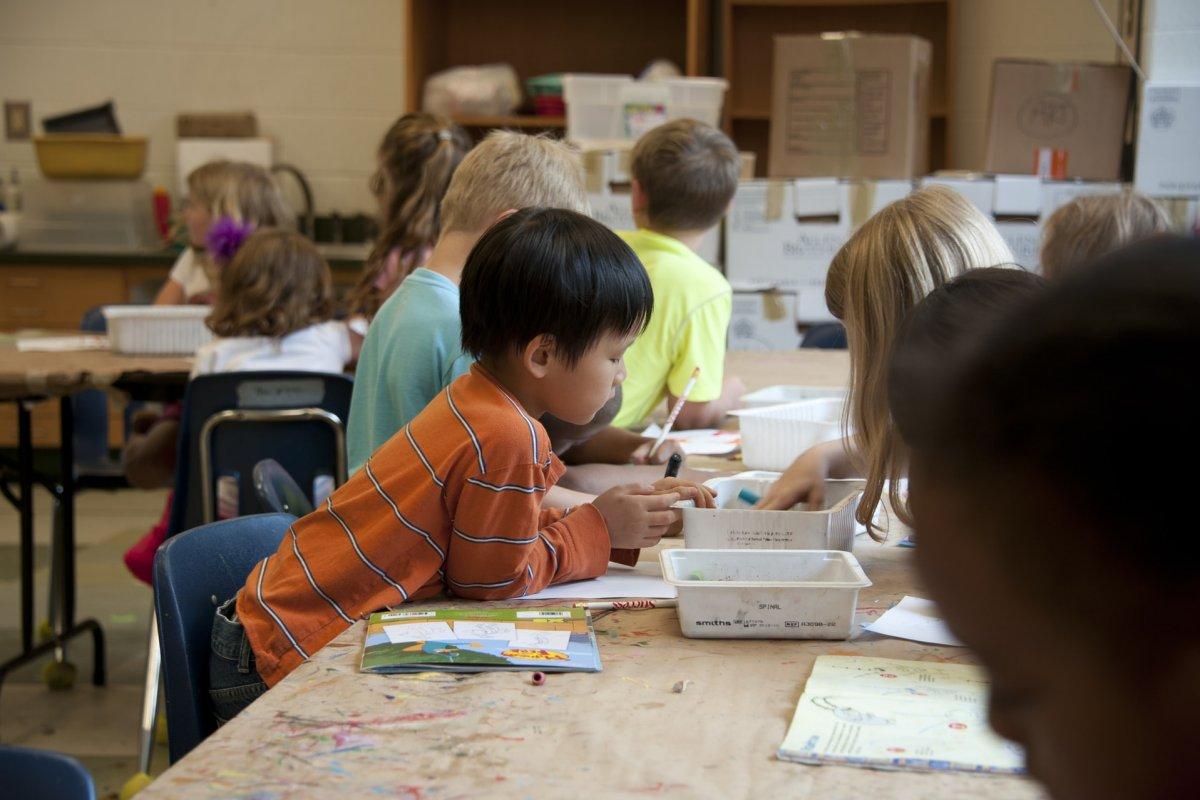
2. It can be tedious to relocate to the Netherlands
If you have a family, and you want to live in the Netherlands, think about education.
While it should be easy for young children, older children who have never spoken Dutch in their lives might have trouble. And even if you choose bilingual primary and secondary schools, Dutch is spoken around 50 percent of the day!
3. There are options for foreign students in the Netherlands
Nevertheless, if you do not plan on staying for very long in the Netherlands, or if you chose to teach English only to your children, there are still international schools that exclusively teach in English.
Another option is choosing some bilingual schools which offer special programs for non-Dutch speakers.
4. There are 3 types of secondary education institutes in the Netherlands
Primary education in the Netherlands lasts 8 years, for children aged 4 to 12.
After that comes secondary education, the equivalent of high school in the Netherlands. Depending on their results as well as the advice from the school, they need to choose between one of the following paths: “voorbereidend middelbaar beroepsonderwijs”, “hoger algemeen voortgezet onderwijs” or “voorbereidend wetenschappelijk onderwijs”.
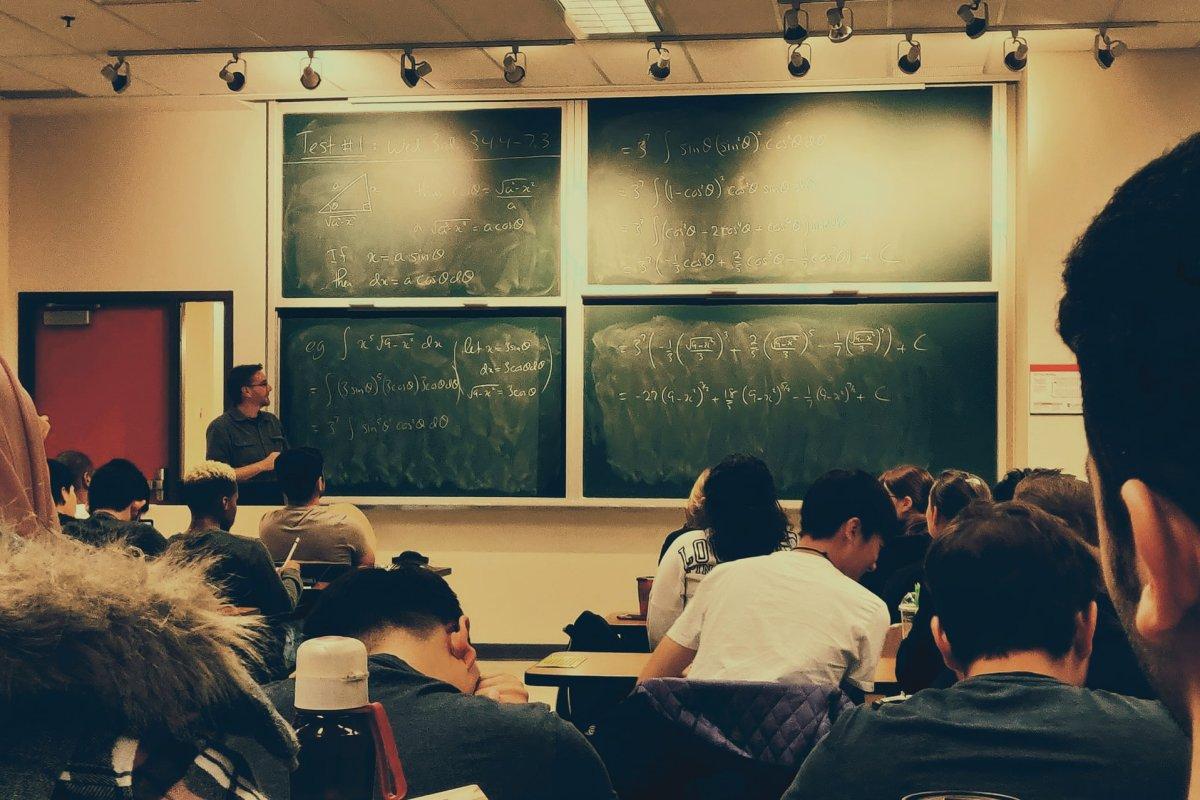
5. The first secondary education institute in the Netherlands is VMBO
“Voorbereidend middelbaar beroepsonderwijs”, often called VMBO, is the first possibility when it comes to secondary education in the Netherlands.
It is pre-vocational secondary education, and it lasts 4 years. It combines both theoretical and academic training. 60 percent of Dutch students choose VMBO.
6. There are four levels in VMBO
Depending on their score, students will be assigned to one of the four education levels in VMBO.
Their acronyms are VMBO-TL (theoretical learning path), VMBO-GL (mixed learning path), VMBO-KBL (middle management-oriented learning path), and VMBO-BBL (baic profession-oriented learning path). There is also full-time practical education for children who would not obtain a VMBO-diploma otherwise.
7. The second secondary education institute in the Netherlands is HAVO
“Hoger algemeen voortgezet onderwijs”, often called HAVO, is the second possibility when it comes to secondary education in the Netherlands.
It is higher general continuing education, and it lasts 5 years. After graduating from HAVO, students can access the HBO level (polytechnic) of tertiary education.

8. HAVO is divided into two phases: general and specialized education
The first three years of HAVO are very general, and are the same for everyone: languages, history, sciences, mathematics, and arts are taught.
Then come the last two years, where students need to choose one of four profiles: culture and society, economy and society, nature and health, or nature and technology.
9. The third secondary education institute in the Netherlands is VWO
“Voorbereidend wetenschappelijk onderwijs”, often called VWO, is the third possibility when it comes to secondary education in the Netherlands.
It is preparatory scientific education, and it lasts 6 years. With a VWO diploma, students can access WO training in universities (though not all of them have the same admission criteria).
10. There are two possibilities in VWO: “atheneum” and “gymnasium”
Atheneum and gymnasium programs are the two possible paths in VWO. The gymnasium program is similar to the other one but adds Latin and Greek as compulsory courses.
Depending on schools, these ancient languages might be taught in the first or the second year, usually starting with Latin.
11. Dutch students do not have many homework to do
In the Netherlands, students can enjoy their free time: there is not that much homework.
They follow what research has shown: play and exercise are vital to children’s school performance. Because of this, Dutch children aged under 10 will receive little to no homework every day, so they can have time for daily exercise. This may be one of the reasons why Netherlands has one of the best education systems in the world!

12. Dutch students usually eat at home instead of at the school cafeteria
While school days last from around 8:30 AM to 3 PM in the Netherlands, students go home for lunch instead of eating at a school cafeteria.
Also, Wednesdays are even more dedicated to out-of-school activities, since schools dismiss students at around noon.
13. Learning a second language is very important in Dutch education
While not many countries put that much emphasis on it, learning a second language is primordial in the Netherlands.
As you know, there are bilingual schools, but generally, all Dutch students learn English, starting very early. There are even schools that require a third language.
14. Education in the Netherlands is affordable compared to Dutch people’s income
Education in the Netherlands is compulsory and free until the age of 16. After that, parents need to pay annual tuition fees for their children’s higher education.
The average cost of said tuition fees is around $2,000 per year, and low-income families can also apply for grants.

15. There are 152 international schools in the Netherlands
English is very important for Dutch people, and this is why so many of them speak it. As a matter of fact, Dutch people are the most proficient English speakers in the world !
To make this possible, they added English very early in their curriculum, but there are also more than 150 international schools in the country that mostly (or only) teach in English.
16. Every child in the Netherlands has access to the regular school in their neighborhood
Education in the Netherlands is very inclusive: even children who require very specific additional support are welcome and will be able to attend regular school, which is responsible for providing a suitable place for these children to learn.
If the support is too intensive, there are also special needs schools.
17. Homeschooling is generally not allowed in the Netherlands
Generally speaking, homeschooling is forbidden in the Netherlands.
Nevertheless, exceptions can be made for families with no school satisfying their religion or life conviction needs in the vicinity. When a child joins this system, it will be very hard for him to go back to regular school though.

18. There are two types of higher education institutes in the Netherlands
Higher education is divided into two parts in the Netherlands: research-oriented education (WO) and higher professional education (HBO).
The first one is typically offered by research universities, while the second one takes place in universities of applied sciences . They both lead to Bachelor’s or Master’s degrees, but in WO students can also pursue a PhD degree.
19. The Netherlands use a credit system for their education
In order for education to be on equal footing in Europe, many countries use the European Credit Transfer and Accumulation System, better known as ECTS. This enables anyone to move to another country, or temporarily study abroad.
These credits represent 28 hours of study each, and a year is worth 60 credits.
20. There are examinations as early as primary school in the Netherlands
At the end of primary school, children need to pass their first examination. Each school decides which of the government-approved tests they choose, but all students in one school take the same type of test.
There is also an examination at the end of secondary education.

So there you have them, these were all my 20 interesting facts about the Netherlands school system. I hope you enjoyed them and that you learned something new today.
In case you want to learn more about the rest of the country, feel free to keep reading, as I still have lots of things to tell you about:
Let’s keep going with our next part, dedicated to Dutch school hours. The typical school schedule in one country can often be very different from your own, and it’s always interesting to have more details on how students go on about their day.
The Netherlands Primary School Schedule
Mandatory education in the Netherlands starts with primary school, for children aged 5 (though some schools accept 4-year-old kids).
Between the ages of 4 and 12, Dutch children attend primary school. The first 2 years are dedicated to basic skills, before shifting to a more academic path starting in group 3 (primary education ranges from group 1 to group 8, similar to grades).
At the end of group 8, almost every school administers the “ Cito test ”, an aptitude test. It is not mandatory though.
Usually, school starts between 8:30 AM and 8:45 AM before ending between 3 PM and 3:15 PM. The school year typically runs from August or September to June or July.
Dutch High School Schedule
After primary school comes secondary education in the Netherlands.
Dutch children immediately enter high school at the age of 12: depending on their Cito results and the advice of the school, they will choose one of the three possible tracks (“pre-vocational secondary education”, “higher general continued education” or “preparatory scientific education”).
High school lasts 6 years.
This last part is dedicated to general facts about the Dutch education system. More specifically, we’ll check 2 key figures that will give you a better understanding of the Netherlands education level.
Enrollment in tertiary education for The Netherlands: 78.5%
(Average for regions: Sub-Saharan Africa: 8.6% | South Asia: 20.8% | Arab States: 36.4% | East Asia: 36.5% | Latin America: 43.3% | Europe and Central Asia: 62% | North America: 84%)
Data from World Bank EdStats/UNESCO
The Netherlands literacy rate: 99%
(Average for regions: Sub-Saharan Africa: 65.3% | South Asia: 72.9% | Arab States: 79.4% | Latin America: 93.7% | East Asia: 95.8% | Europe and Central Asia: 98.5%)
Do you want even more education facts about other countries?
Check out these facts:
- Education in Germany
- Education in Poland
- Education in Ireland
Or click here to see ALL the education facts up on the blog!
- There are bilingual primary schools in the Netherlands
- It can be tedious to relocate to the Netherlands
- There are options for foreign students in the Netherlands
- There are 3 types of secondary education institutes in the Netherlands
- The first secondary education institute in the Netherlands is VMBO
- There are four levels in VMBO
- The second secondary education institute in the Netherlands is HAVO
- HAVO is divided into two phases: general and specialized education
- The third secondary education institute in the Netherlands is VWO
- There are two possibilities in VWO: “atheneum” and “gymnasium”
- Dutch students do not have many homework to do
- Dutch students usually eat at home instead of at the school cafeteria
- Learning a second language is very important in Dutch education
- Education in the Netherlands is affordable compared to Dutch people’s income
- There are 152 international schools in the Netherlands
- Every child in the Netherlands has access to the regular school in their neighborhood
- Homeschooling is generally not allowed in the Netherlands
- There are two types of higher education institutes in the Netherlands
- The Netherlands use a credit system for their education
- There are examinations as early as primary school in the Netherlands
Share the knowledge! Click on the buttons below to share these Dutch school facts with your friends, and help them learn more about the world 🙂
Hey, I'm Kevin

I'm a professional photographer, with over a decade of experience in the travel industry. I worked with countless travel brands, and my travel advice has been featured in major publications such as CNN, Forbes & the New York Magazine. But the best travel advice is definitely found here on my website! I'm all about adventure travel, hiking and exploring the outdoors - even if I often find myself exploring cities with my wife Nesrine. If you have any questions, leave a comment on this post or reach out by email at: [email protected]
Come say hi on social!
Countries I've visited
Recommended Reading

Leave a Reply Cancel reply
Your email address will not be published. Required fields are marked *
Notify me when new comments are added.
- Dual careers
- Volunteering
- ACCESS Features
- ACCESS Magazine
- Counselling
- Childbirth Courses
- First Aid Courses
- Testimonials
- Disclaimer and privacy policy
- Thank you for registering for the Eindhoven Childbirth Course
- ACCESS Partners
- ACCESS Counsellors
- ACCESS Trainers
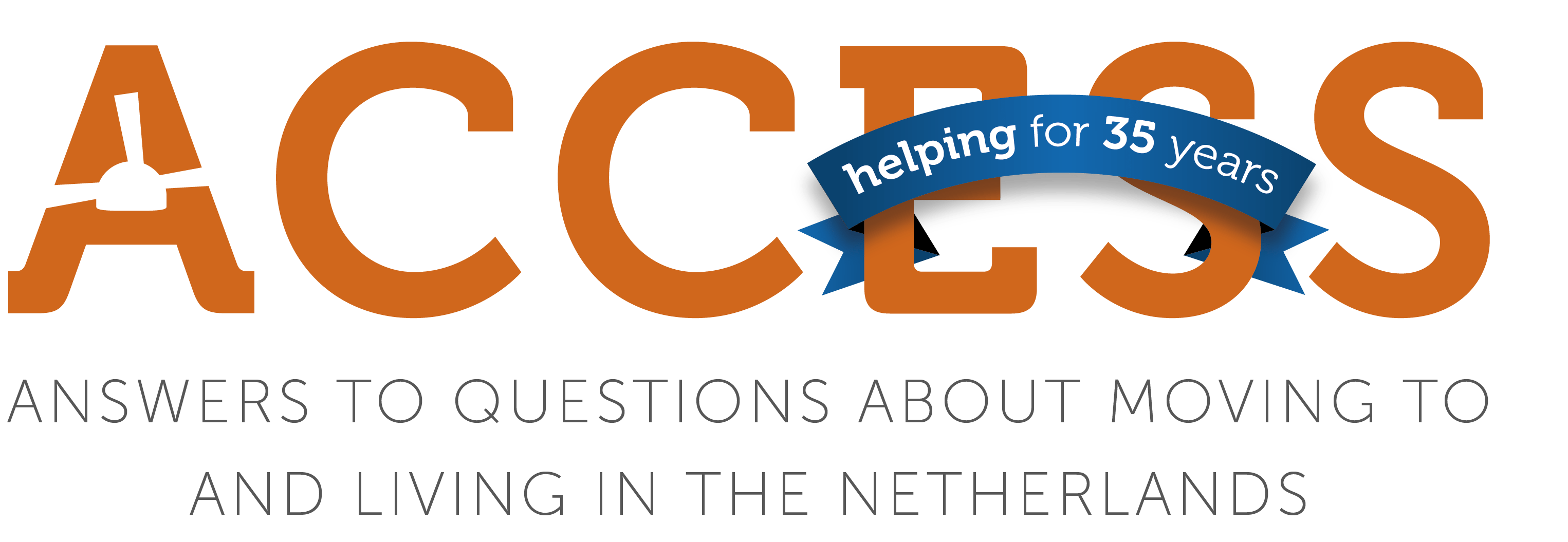
Helpdesk + 31(0)85 4000 338 helpdesk[at]access-nl.org
Visit us in:
The Hague - Amsterdam
Amstelveen - Utrecht
ACCESS NL > Education in the Netherlands > Dutch school system > Primary and secondary education > I am moving to the Netherlands soon. I am considering home schooling for my children. Is this allowed in the Netherlands?
Primary and secondary education
I am planning to stay here for a long time. Should I send my children to a Dutch or an international school?
If you are planning to stay here for a long time, a Dutch school could be an option, depending on the age of your children. If your children have previously attended a school in another country and are used to lessons in English, or if you anticipate that your children will return to another country’s educational system in the future, it might be in the best interests of your children to go to a Dutch international school (subsidised by the Dutch government) or an international school here in the Netherlands.
However, if your child is at the beginning of primary school, a Dutch school might be an option. Some of them offer special courses to learn Dutch for newly-arrived foreign children ages 6-11 at the opvangscholen (reception schools). These are ordinary basisscholen (primary schools) with a special class for learning Dutch: the reception group. Every week they are taught to speak, comprehend, read and write Dutch by someone who is experienced in teaching foreign children. When children are not attending lessons in the special reception group, they attend regular classes at the school for subjects such as math, history, science, arts and crafts, etc. You can find such a primary school on https://www.lowan.nl/po/scholen/ (Dutch only). Keep in mind that if you are looking for a school in The Hague to search for “Den Haag” (in Dutch).
Children from 12 years of age are usually required to attend Internationale Schakelklas – ISK (bridging schools). Children will usually be assessed for their linguistic skills in the Dutch language before they are allowed to enrol in an ISK school. Depending on their age and ability in mastering the Dutch language, children will typically spend between 1.5 to 2 years attending an ISK school before transferring to the mainstream Dutch educational system. You can find such a secondary school on https://www.lowan.nl/vo/scholen/ (Dutch only). Keep in mind that if you are looking for a school in The Hague to search for “Den Haag” (in Dutch).
The following website https://utesinternationallounge.com/dutch-education-explained-by-genoveva-geppaart/ provides you with an overview of Dutch education.
I have a 14 year old daughter who is coming to live with me in the Netherlands. She does not speak any Dutch. Therefore, can you recommend a Dutch state school where my daughter can learn the language as well as being taught the normal academic subjects?
From 12 years of age, Dutch children normally choose from more vocationally-based training to pre-university diplomas depending on their academic ability. The lessons are given in Dutch.
After registering with the municipality in which they live, those children who meet the following criteria are usually required to attend ‘bridging’ schools known as Internationale Schakelklas – ISK:
- Have lived in the Netherlands for less than two years
- Need tuition to become competent in speaking the Dutch language
- Are between the ages of 12 and 18
Children will be assessed for their linguistic skills in the Dutch language before they are allowed to enrol in an ISK school. There are ISK schools located throughout the Netherlands. There is no list of ISK’s . Best is to check with your municipality.
The ISK schools prepare pupils for intake into secondary education or vocational education, depending on the age of the students. These schools teach children as much Dutch as possible, so that the children can learn to the same level of academic ability in the Netherlands as they would in their home country. At the ISK schools the teenage children will be given dedicated lessons to learn Dutch for approximately 16 to 20 hours per week.
In addition to the teaching of other academic subjects such as mathematics, geography, history and economics, art and culture, the ISK schools also provide additional support for the students. This support is often in the form of a dedicated mentor and access to other specialised services, for example a speech therapist for those children who experience difficulty in pronunciation of the Dutch language.
Depending on their age and ability in mastering the Dutch language, children will typically spend between 0.5 to 3 years attending an ISK school before transferring to the mainstream Dutch educational system.
Do all international schools teach in English?
In general, most international schools teach in English, but there are also schools that teach children in their native language, e.g. the German, French, Indonesian, Japanese and Korean schools.
What are the principle aims of Dutch primary school education and what subjects will my child be taught?
The Dutch government has set kerndoelen (attainment targets) which define what children are expected to have acquired in the way of knowledge, understanding and skills by the end of primary school. Whilst these attainment targets describe in general terms the skills and knowledge a child must have acquired, the referentieniveaus (benchmark levels) for mathematics and language specifically prescribe the degree of proficiency that a child must attain in any given year of schooling.
The core curriculum for all basisscholen (primary schools) must include the following subjects:
- English (from group 7 on- 10/11 years years old)
- Arithmetic and mathematics
- Social and environmental studies (including, for instance, geography, history, science – including biology, citizenship, social and life skills – including road safety, healthy living, social structures – including political studies, and religious and ideological movements)
- Creative expression (including, for instance, music, drawing and handicrafts)
- Sports and movement.
Schools are free to offer other subjects such as French, German or religious studies, but these subjects are not required by law.
I want to raise my children bilingually. Are there any Dutch schools that teach (partly) in English?
There are an increasing number of schools providing bilingual lessons. Most of them are secondary schools. In the Netherlands, Tweetalig Onderwijs – TTO (bilingual education) came into existence in 1989. In most cases, TTO refers to bilingual (mostly English-Dutch) and V oorbereidend Wetenschappelijk Onderwijs – VWO, where this is the pre-university stream in Dutch secondary education.
In the TTO schools, a wide variety of subjects such as history, geography, math, physics, biology, chemistry, economics, IT, arts and music are taught in English. Bilingual lessons are taught over the preceding six years leading up to university entrance. Whilst in the last three years, students will focus upon the academic subjects that they will be examined on (in Dutch), some of the lessons will still be provided in English. Bilingual students also have the opportunity to sit the internationally recognised International Baccalaureate (IB) English Certificate. A successful result qualifies these students to enrol at English-speaking universities.
The aim of bilingual education is to prepare students for an increasingly global environment. Hence, whilst foreign language skills are important, the lessons are taught in a broad, internationally oriented context.
It should be noted that the Dutch bilingual school system has been set up with the emphasis upon native speaking Dutch children becoming competent in speaking English as their second language rather than vice versa.
What are the options for my child’s secondary and higher education options in Dutch schools and universities?
During the final year of primary school (normally in April/May), Dutch children take a mandatory test. The aim of this test is to assess the extent to which a child has progressed in his or her proficiency of the Dutch language and in mathematics. The results of the test, together with the teacher’s assessment over the preceding years, will determine which type of secondary education would be most appropriate for the pupil. The secondary and higher education options are:
- VMBO: practical secondary education
- HAVO: senior general secondary education (entrance to HBO – university of applied science)
- VWO: university preparatory education (entrance to hbo – university of applied science or wo – research university)
VMBO (preparatory secondary vocational education)
The VMBO ( voorbereidend middelbaar beroepsonderwijs ) prepares its students for a more vocationally based secondary education at a MBO ( middelbaar beroepsonderwijs ) senior school or, in some cases, a more general secondary education at a HAVO ( hoger algemeen voortgezet onderwijs ) senior school. A pupil will spend four years in VMBO education and whilst in their second year choose their preferred vocational direction. At the MBO they will be taught subjects that will prepare them for various occupations ranging from shop manager to mechanic or nursing assistant. Pupils who successfully complete the theoretical, combined or middle-management vocational programme at the VMBO level can enrol in professional and middle-management training. Holders of a middle-management MBO certificate may go on to study at the HBO level (higher professional education).
HAVO (senior general secondary education)
A HAVO ( hoger algemeen voortgezet onderwijs ) education takes five years and prepares students for a professional education ( hoger beroepsonderwijs – HBO).
VWO (pre-university education)
A VWO ( voorbereidend wetenschappelijk onderwijs ) education takes six years and prepares students for a research university education . In the first two years, students follow a common curriculum. All students at a VWO school must study three languages (French, German and English) up to the end of their third year. At the end of the third year, the students choose an academic ‘profile’ package, which includes both compulsory and optional subjects.
Find more information about foreign education systems and international baccalaureate as well as overviews of foreign diplomas in comparison with Dutch diplomas on: www.nuffic.nl .
In the Netherlands, all children aged 5-18 are required to attend school. Hence, ‘home schooling’ is not allowed. There are, however, a few situations in which an exception can be made. If you have objections to the view of life (e.g. religion) of every school in your area, you need to give a declaration to your municipality about this. You can contact your municipality for more information about the content of the declaration.
If your child is physically and/or mentally unable to attend school, you need permission for home schooling from your municipality.
Nederlandse Vereniging voor Thuisonderwijs – NVvTO is the Netherlands home schooling association. It is an organisation of parents (and other adults who function as such) who wish to home school their children whilst in the Netherlands and have done so in the past, or plan to do so in the future. More information regarding this can be found on Thuisonderwijs.nl/english.
Who is the leerplichtambtenaar and why did I get a letter from this person?
The leerplichtambtenaar is an official in charge of checking that the rules regarding leerplichtwet (compulsory educational law) are followed.
According to Dutch law, schools are responsible for monitoring and controlling all absences of their children from school. They are legally required to inform the leerplichtambtenaar (official in charge) when any child misses more than sixteen hours of school over a period of four weeks. The school may also inform the leerplichtambtenaar if a child has been late twelve times for school.
Once the leerplichtambtenaar has received such information from the school, he/she will contact the parents to determine what action may be taken.
Only in a few specific circumstances can schools grant permission for children to miss school during the school year. Schools may grant permission for a child to be absent from school for events such as weddings, funerals, religious holidays and moving house. For every other absence, it is compulsory for the parent to ask for permission from the head of school in advance.
School attendance records are regularly inspected by a leerplichtambtenaar , who tends to also check for pupil absentees right at the beginning or end of the school term, as they are regarded as very suspicious periods.
How does the Dutch school system work?
Dutch education is , like in many other countries, divided into primary education, secondary education and tertiary education.
Primary education
In the Netherlands, primary school starts with kindergarten at age four. From age five it is compulsory to attend school fulltime. There are hardly any private schools in the Netherlands. Schools can have a certain religious orientation such as Protestant, Catholic, Islamic, Hindu, any other religion or no religion at all. In addition, schools can follow a certain educational philosophy such as Montessori, Jenaplan, Dalton or Vrije School (internationally also known as Waldorf). Children with special educational needs will find offerings more frequently in primary than in secondary schools.
Secondary education
There are four options for secondary school:
- Practical education ( praktijkonderwijs)
- Preparatory secondary vocational education (voo rbereidend middelbaar beroepsonderwijs , VMBO)
- Senior general secondary education ( hoger algemeen vormend onderwijs , HAVO)
- Pre-university education ( voorbereidend wetenschappelijk onderwijs , VWO)
Tertiary education
After secondary school there are several options:
- Medium level professional education ( middelbaar beroepsonderwijs , MBO) for those who have finished VMBO. Like VMBO this has four levels.
- University of Applied Science ( hoger beroepsonderwijs , HBO) for those who have finished HAVO (or MBO at the highest level)
- Research University ( universiteit ) for those who have finished VWO ( or first year -called propedeuse – at HBO)
You can read more about how the Dutch education system works on the site of Ute Limacher-Riebold
My daughter is in group 8 of a Dutch primary school. She is capable of the HAVO or VWO track in secondary school, but her Dutch is insufficient for this level. What options are available?
If your child is capable of HAVO or VWO but her Dutch level is insufficient, a kopklas can be the solution.This year following group 8 focuses on improving children’s Dutch and enabling them to attend the most appropriate secondary school. Choosing this class requires high motivation by both parents and child, and it is best to discuss this option with your child’s teacher.
Special needs education
View the FAQ’s
After-school activities for kids
Related Partners
American School of The Hague
Amity International School Amsterdam
Amersfoort International School
International School Delft
Harbour International School
Zein International Childcare
Winford Bilingual Schools

Please wait while your request is being verified...
We are using cookies to give a better service experience. By using our services you agree to use cookies. Read more
The school with no classes, no classrooms and no curriculum.
We start with you. What do you want to learn? What are your talents, interests, and ambitions? You can use everything in the world that’s worthwhile to investigate, make or develop as your personal starting point for learning. Your personal coach will support and supervise your learning process. At Agora we traded courses, timetables, classes, and tests for challenges, collaboration and coaching by teachers.
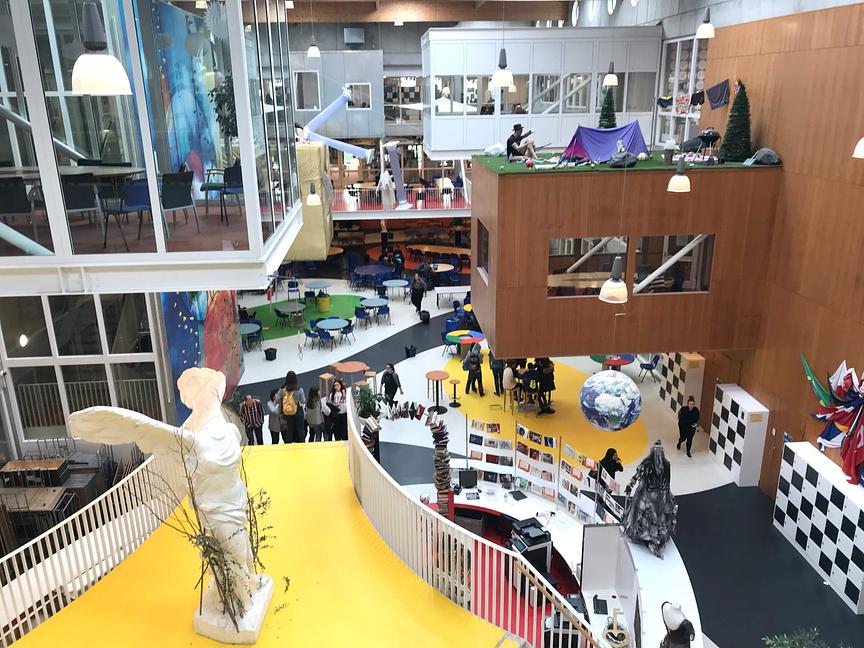
HundrED has selected this innovation to
HundrED 2022
HundrED 2021
HundrED 2020
About the innovation
The basics...
At Agora, we believe that school has to be a good mix between:
Harvard University ... a place where all the knowledge of the world is within reach.
A Buddhist monastery ... where you feel comfortable and at ease andwhere you discover what is valuable to you in life.
A creative laboratory ... where you can make and try everything you can imagine: painting, welding, graphicdesign, 3D printing...from cooking to programming to making a robot: if you canimagine it, you can make it.
A marketplace … where you can see new things, meet and inspire each other, debate and interact.
Disneyland … a place where you feel happy, amazed and above all: welcome, supported andchallenged by the staff!!
A day at Agora
At Agora we have a simple daily structure. Within this structure, your coach teaches you to plan your challenges and other activities. Coaches start at 8 in the morning. Students start at 9 with a ‘dagstart’ (start of the day). This takes half an hour, and it’s all about interacting with other students about working together, or for instance debating about topical subjects.After the ‘dagstart’ everybody has their own agenda. After the lunch break, we have half an hour of silence, so everybody can do their obligatory reading. Most of your days end at 3pm. It’s possible and sometimes necessary to stay longer for instance to visit physical education.
> We start with you. What do you want to learn? What are your talents, interests, and ambitions? You can use everything in the world that’s worthwhile to investigate, make or develop as your personal starting point for learning. Your personal coach will support and supervise your learning process. At Agora we traded courses, timetables, classes, and tests for challenges, collaboration and coaching by teachers.
> Challenges are your personal questions, problems, things you want to learn or know, research or make. To start a challenge you have to be well prepared. Good preparation is half the battle. You and your coach decide what the end result of your challenge will be and answer questions like: What are you going to learn during this challenge? Who are you going to collaborate with to achieve a great result? How long will your challenge take? Of course if necessary your coach and other students will be there to help you with this.
> After your preparation, you present your plan for your challenge. During this presentation, you explain who might be able to help you in the various stages of the challenge to come. You explain where and how you expect to get information and knowledge. If this goes well you can start your challenge. During this execution phase, you keep track of your progress. You write down how you found information and which information you found where and how. If you’re making something you can also add pictures or videos to show and explain the progress. You, for instance, explain the difficulties and problems you encountered. You also explain how you overcome them. And of course, you write down what you want to achieve tomorrow.
> At the end of the challenge you present your end product. There are lots of ways to do this. You can make a video, a sculpture or painting to show off what you learned. Maybe you will invite us to come to a stable because you want to show us what you learned about horses in practice. Your parents, other students, and your coach are all invited for your presentation.
> After this, you have a ‘review- talk’ with your coach. You reflect on how your challenge went, which skills you improved and how you can use these during your next challenge.
Personal workspace and coach group
Your coaching group consists of a maximum of 17 other children of different age and levels. At your coaching group you have a personal workspace which you can arrange to your own taste. This means there is no walking to a different classroom every 50 minutes, instead you work at your personal workspace. Do you like variety? We also have rooms to collaborate and have meetings in. We even have silence rooms, where you can study in silence. We have workspaces where you can cook, do carpentry, painting, metalworking, or program a robot, etc. We also have volunteers who offer inspirational sessions which you can join, and we love it when you visit people and companies outside our school.
Student, coach, and course expert
At Agora you as a student have a personal coach. The two of you make your personal learning plan. Making adjustments to this plan is a continued process. You are in a coaching group with 17 other students and a coach. At least once a week you have a talk with your coach. Aside from this ‘official’ talk you see and talk to your coach every day because you are in the same room every day. When you have been at Agora for a couple of years and start preparing for the national exams you start working with our subject experts. They are teachers who support you for a specific subject.
Parents have an important role at Agora. We expect them to help on a voluntary basis. This could be anything, like helping in one of our workplaces (kitchen, carpentry, makerspace etc.). Or helping us by driving students to places they want to visit. Lots of parents offer internships, give workshops or inspiration sessions on their personal hobbies, interests, passion or occupation. Parents share these personal hobbies, interests, passions, and occupations with our students. This is great because schools can’t be experts at everything.
Impact & scalability
Agora redefines the idea of school in the traditional sense, by providing students the freedom to explore their own passions and provide personalised coaching to help students throughout their learning journey. Agora is continuously adapting to scale elements of their model within the Netherlands and abroad.
This innovation is already scaling both in the country of origin and abroad and I believe it has a high potential to scale further. It looks that this innovation can be applied in any context in any country.
The personalised learning here is great. Students have the freedom, space and resources to explore their own interests. The possible creations and outputs are endless.
Spread of the innovation
Similar innovations.

Don’t miss news and opportunities to engage with HundrED
Do you want to save changes.
Homeschooling Resources at Your Fingertips
Homeschooling in the netherlands.
Just like any other type of schooling, homeschooling is an international endeavor. Millions of families decided to take their child’s education into their own hands, especially during and after COVID-19. And, like the United States, every country has its own opinions, philosophies, and laws surrounding homeschooling.
In this monthly series, we’ll take a look at different countries and how they view homeschooling as well as the types of laws (if any) those countries have to govern homeschooling. The first country we visited was the second-largest country in the world, and the northern neighbor to the United States– Canada . Then we went island hopping to the Philippines and Puerto Rico before cruising on over to South Africa . We headed back to the Caribbean to the Dominican Republic , traveled all the way to Thailand , made our way back to Mexico , and then journeyed to the Middle East to explore homeschooling in Qatar and Saudi Arabia !
After our first venture into Europe to look at Spain , we headed back to Asia to review homeschooling in India , then back West to the United Kingdom and then back to Asia to explore homeschooling in China before shifting back to Europe to learn about homeschooling in Romania and Italy . Then we headed back to Africa to visit Nigeria –now we’ll jump back to Europe to learn about homeschooling in the Netherlands!
The Netherlands is full of interesting facts and figures:
- Many people use Holland and the Netherlands interchangeably; however, Holland is just one area that comprises two provinces (North Holland and South Holland) in the Netherlands. Overall, there are 12 provinces in the country.
- The Netherlands is the lowest-lying country in Europe. In fact, more than 25% of the country actually sits below sea level. Not surprising, considering the Netherlands translates to “lower countries.”
- The total population of the Netherlands is approximately 17,652,000, ranking it number 72 in the world. Despite the relatively small size of the country, the Netherlands is one of the most densely populated countries in the world.
- The Dutch are the world’s tallest people–the average Dutch person stands at around 5’7-½”. Dutch men, also the tallest in the world, average just under 5’10” in height.
- There are more bicycles in the Netherlands than humans. More than 22 million bikes for just over 17 million residents. Go figure.
- Around 20% of the country’s residents are of a non-Dutch background. More than half of the country’s immigrants come from places like Turkey, Suriname, Morocco, Antilles, and Aruba.
- The Netherlands doesn’t have a single city with a population of 1 million people . Amsterdam is the largest at around 918,000, followed by Rotterdam (approximately 650,000) and The Hague (550,000).
- The country is very tech-savvy and is responsible for the inventions of the cassette in 1963, the compact disc (CD) around 20 years later, and the DVD in 1997 (which evolved into Blu-ray). Electronics giant Philips, a Dutch company, is to be credited for advancing physical media throughout the world–not to mention other home appliances and electronics.
Rules and Requirements for Homeschooling in the Netherlands
According to the Home School Legal Defense Association (HSLDA) , homeschooling is not explicitly recognized by Dutch law. Locally, the Municipal Executive Council checks whether pupils subject to compulsory education are attending schools in their municipalities. Each municipality requires at least one compulsory education officer.
Compulsory attendance is from ages 5 to 16; part-time attendance is allowed for students 16 to 18 years old in a work-study combination program. Parents who withhold their children from official school education are legally liable to punishment based on the Compulsory Education Act, which states that school attendance is mandatory. Many families, however, can obtain a religious exemption to compulsory education. In 2021, the number of children educated by their parents at home for religious reasons increased by 21 percent . While this continues the trend of a growing number of homeschoolers, the country had never seen an increase so quickly.
There is also an exception in the law from the mandatory schooling requirement in situations where parents are not satisfied with the available neighborhood schools, and there are not enough parents locally with the same concerns to justify starting a new school. This legal exception allows approximately 100 families (around 200 children) to enjoy homeschooling in the Netherlands each year, but most choose to do so for religious reasons.
If you decide to homeschool in the Netherlands, and are granted a legal exception, a few groups and organizations can help answer your questions about home education in the country.
- Netherlands Association for Home Education
- Access Netherlands
- Home in Leiden
The Netherlands offers its residents as well as visitors a stunning array of sights and attractions–perfect for homeschool field trips! These include the canals of Amsterdam, the Royal Palace, the Cube House in Rotterdam, Museum Square, the NEMO Science Museum, Markthal Arch Market, Inner Court & The Hall of the Knights, Kasteel De Haar, The Hague, Rijksmuseum, the Rembrandt House Museum, Micropia, the Van Gogh Museum, Giethoorn, Dam Square, Anne Frank’s House, Volendam, and of course the famous tulip fields of Holland–just to name a few!
The Netherlands’ School System
The Inspectorate of Education, which has the power to close schools or to encourage them to modify their curriculum, oversees the education system in the Netherlands. There are three main types of schools:
- Public schools
- Special schools (religious)
- General schools
There are also Islamic schools and a small number of private schools, including approximately 150 international schools.
The education system in the Netherlands begins with kindergarten, followed by Stage 1 (elementary school), where students will spend the next seven to eight years. Next are three types of secondary schools:
- VMBO schools, which provide pre-vocational education. The majority of Dutch students will attend a VMBO for four years and study arts and sciences, languages, math, and history.
- HAVO schools, which students attend for five years in preparation for applying to universities of applied sciences.
- VWO schools, which students attend for six years. A VWO diploma qualifies as acceptance into a research university.
In general, education in the Netherlands is quite good. The 2023 U.S. News & World Report Best Countries for Education ranked the Netherlands as number 11 in the world. And the Organization for Economic Co-operation and Development’s (OECD) Educati o n GPS , which uses the Programme for International Student Assessment (PISA) to assess the reading, science, and math skills of 15-year-old students every three years, reported these statistics for students in the Netherlands, which back up the country’s #11 world ranking–particularly in math and science:
- In reading, students in the Netherlands averaged a 485 score, just a tick below the OECD country mean of 487.
- In math, students in the Netherlands scored 519, significantly higher than the OECD country mean (489).
- In science, students in the Netherlands scored 503, also well above the OECD country mean of 489.
The general education climate in the Netherlands is rather positive. But many parents still look to provide their children with the best education possible. One centered around their schedules, beliefs, and way of life. And they choose to do so through homeschooling.
Bridgeway in the Netherlands
If you live or plan to live in the Netherlands, Bridgeway Academy is ready to be your homeschool partner. Bridgeway Academy offers plenty of amazing homeschool programs–plus accreditation , record-keeping , and support–that can be used anywhere in the world! And, don’t forget to look up fellow Bridgeway Academy families. The Bridgeway Academy community is a strong one, found in nearly two dozen countries!
Download our free PDF about homeschooling with a U.S. based program . Then contact our admissions team at (800) 863-1474 to start your homeschool adventure. Stay tuned–we’ll be bringing you homeschooling info from another international location soon!
Recommended Reads
Share with your community:, explore more rewarding homeschool topics:.
- Bridgeway Community
- Bridgeway News
- Learning Struggles
- Learning Styles
- New to Homeschooling
- Tips & Ideas

- International
- Politics & Society
- Photo Report
- Relationships
- Learn Dutch
- Attractions
- Restaurants
- Scheveningen
- International Travel
- Bank for Internationals
- Dutch Language School
- International School
- Recruitment Agency
- Relocation Service
- Real Estate Agencies
- Tax Accountant
- Mortgage Advisor
- Psychologist
- DutchReview Team
- Privacy Policy
- Take Down and Notice
- Advertise with DutchReview
- Submit an article
- Editorial Internships
🚀 New feature alert! Find the best businesses for internationals on DutchReview's Business Directory
Working from home in the Netherlands: the complete guide

Thinking about working from home in the Netherlands? There’s nothing more ideal than snuggling up with a house-made coffee, turning on your laptop, and working like a boss in your underwear (it’s okay, we won’t tell).
Luckily, if you’re in the Netherlands, you’re well-placed to work from home. In fact, 1.2 million Dutchies did just that in 2019.
So, how did the Netherlands gain such a great reputation for working from home? Is the future of working from home in the Netherlands at risk?
And how can you get in the home-office game — while still impressing your boss?
READ MORE | 7 top pieces to upgrade your home office in the Netherlands
We’ve compiled all the information about working from home in the Netherlands in one place. Let’s get cracking!
Working from home in the Netherlands is common
Really common. In fact, the Netherlands is the second-best place to work from home in 2023. Around 8.8% of Dutch people worked from home.
And this isn’t new: even before the coronavirus hit the country, the number of remote workers had increased by half a million from 2013 to 2019.
My new #workfromhome supervisor is quite the micromanager pic.twitter.com/SVqkCmYiNx — Jessica Tai (@j__tai) March 16, 2020
Despite the excellent Dutch public transport system , many Dutchies choose to work at home to cut their travel time.
In some places in the Randstad (like Amsterdam, Utrecht, the Gooi, and Vecchstreek), almost half of the workforce worked from home at least sometimes in 2019, according to the Central Bureau of Statistics.
You may have a legal right to work from home
The Flexible Working Act in the Netherlands has been in force since January 1, 2016.
Among other things, the Act stated that after an employee has been working for more than six months, they can ask to adjust their hours or place of working. The employer can only deny the request if they have a good reason.
The Netherlands is relatively progressive in this arrangement. But, companies may not always be in favour.

Computer giant IBM became the first multinational this century to encourage its workers to work from home. Ever since then, the company has had 21 quarters of falling profits and ordered thousands of employees to return to the office “or else leave the company.”
They’re not alone: Yahoo, Honeywell, and Bank of America also brought their employees back to the office.
Is working from home all it’s cracked up to be?
It sounds like a dream, right? No commute time, no office clothing, and the ability to ignore annoying colleagues if they message you. Yep, working from home sounds great — and it will make you more productive, right?
But in reality, working from home can dramatically affect your productivity. In the US, the benefits of working from home have been called “the big lie.”
Problem with trying to #WorkFromHome is one moment you are clacking away at your computer and the next you are washing curtains — Nandini Nair (@NandiniNai) March 17, 2020
Despite employees promising their bosses (and themselves) that they’ll be up early, tapping away on their computer at their kitchen table, that’s not always what happens.
A Dutch study from 2018 found that employees have too little self-discipline . They are often distracted at home by laundry or catching up on Netflix.
The same study found that combining work and family can make you more exhausted, leading to more arguments at home.
Succeeding at working from home in the Netherlands
Determined to nail the Dutch work-life balance and thrive in your home office? Here are our tips.
Get into a routine
Sometimes, it’s a little hard to separate home life from work life — and it’s easy to lose focus on work and instead revert to doing chores. But, of course, it’s hard to concentrate if you’re constantly getting distracted.
Also, keep in mind that you don’t have a boss coming and monitoring your screen every now and then, so it’s easy to let your mind wander.

It helps to wake up at a certain time in the morning and set hours for yourself when you’re going to work.
Decide when your lunch break will be, if you’ll have a designated time to do chores, and how you will make up that work time later in the day.
READ MORE | Dutch Quirk #5: eat cheese every day for lunch
And, remember not to lounge around in your pyjamas: getting dressed, brushing your teeth and wearing proper clothes can make a big difference to how productive you feel.
Don’t isolate yourself completely
Although the idea of working from home is pretty appealing, keep in mind that human beings were made for social interaction — that’s why some people prefer to work in an office.

Physical contact has been linked to better ideas, communication and decision-making. In this case, it might be nice to have a balance between working from home and working in an office
Don’t be afraid to work outside of home
Working from home doesn’t have to be taken literally — especially as Dutch houses and apartments can be notoriously small.
Get out in the world and check out some coworking spaces if you need a bit more of a routine.

Fortunately, because working from home in the Netherlands is so widespread, there are plenty of coworking spaces available. While the majority of them are paid, some municipalities also fund some that are completely free.
READ MORE | 13 best places to study or work in Amsterdam
Coworking spaces offer a great opportunity to network, have a great working space, and often have ultra-fast internet and complimentary tea and coffee. Check out coworker.com to find one near you.
Or, if you’re feeling a little extra, there are plenty of super gezellig cafés in each Dutch city that you can work from.
Good Wi-Fi is key
If you’re working from home, you’ll likely be communicating frequently with your company or organisation. It’s absolutely essential to have fast WiFi .

Added bonus? Ultra-fast streaming for when the workday is over!
Make sure everyone is on the same page
If you are making the shift to working from home make sure you are upfront and clear with your bosses about what is expected.

Do you need to keep working your normal hours, or can you be flexible and work in the evening? Do you need to be available for calls?
Can you work from another country? Do you ever need to show up to the office? How will your success be measured in the future?
READ MORE | Mental health in Dutch workplaces: an expert’s tips (and signs of a top employer)
Remote working relies on mutual trust to be effective. Discuss the ‘what’ and ‘how’ with your boss and talk about whether you need to come to an agreement in writing.
Know when to call it quits
Working from home isn’t for everyone — and few people find it to be a natural and easy adaptation. Give yourself some time to settle in and focus on making it work.

But, sometimes, it doesn’t work out. Think about how long you’ll try it out and when you may think about returning to the office. It doesn’t mean you failed — it just means you tried.
What do you think are the benefits of working at home? Tell us in the comments!
This article was co-authored by Vedika Luthra and Samantha Dixon Editor’s Note: This article was originally published in March 2020, and was fully updated in October 2023 for your reading pleasure.
Liked it? Try these on for size:
What car should i buy for life in the netherlands, scalable capital: why this investment app is the way to go for expats in the netherlands , mobile phones and sim cards in the netherlands: ultimate 2024 guide, what do you think.
Does not help the dusabled who can only work from bome. Why not research that since the NETHERLANDS is supposed to be inclusive and non-discriminating towards the dusabled.
LEAVE A REPLY Cancel reply
Save my name, email, and website in this browser for the next time I comment.
This site uses Akismet to reduce spam. Learn how your comment data is processed .
Related posts
Latest posts, what was the eighty years’ war the dutch war of independence explained, 13 unmissable world heritage sites in the netherlands to visit, it's happening, upcoming events, is it alive don’t miss this unique art exhibition in tilburg, ‘in brilliant light’: marvel at contemporary african art at this exciting new exhibit, cherry blossom season, explore one of the netherlands’ top international schools during this virtual open day, do you have what it takes to be an entrepreneur show your skills for a chance to win a €10,000 scholarship, considering a bsc in business administration check out nyenrode university’s amsterdam open day, want to elevate your career check out nyenrode university’s open day for a masters in management, king’s day (koningsdag), national remembrance day (dodenherdenking), liberation day (bevrijdigingsdag), the latest dutch news. in your inbox., woah, you look pretty good here.
We're constantly hunting for the latest, greatest, and most Dutch spots for our readers. Want your business to reach an unrivalled expat and international audience?
We like you - a lot
© 2023 All Rights Reserved. All material on this website (DutchReview) is strictly copyright and all rights reserved. If you are dissatisfied with the website or any content or materials on it, your sole exclusive remedy is to discontinue your use of the website. The website may provide links to other websites on the Internet, the content of which is not in our control. Whilst every effort has been made to ensure accuracy, the publisher cannot accept responsibility for omissions and errors. If you have found material on this website which is copyrighted by others, please contact the webmaster on this matter in order to have it removed.
Applying to teach in the Netherlands with foreign qualifications
Are you a teacher with qualifications gained outside the Netherlands? Do you want to work in education in the Netherlands? In that case, you must apply for recognition of your qualifications. This is only possible if the qualifications you attained have the same value as corresponding qualifications in the Netherlands. With this recognition you can teach in basisonderwijs (primary education) and voortgezet onderwijs – VO (secondary education). Or in beroepsonderwijs en volwasseneneducatie –BVE (vocational education and adult education).
Last updated on 5 August 2022
Lees deze informatie in het Nederlands
Criteria for recognition of qualifications attained outside the Netherlands
The recognition of your qualification is subject to certain conditions. For example, you must have at least completed tertiary level education.
Applying for recognition of qualifications attained outside the Netherlands
Please contact Dienst Uitvoering Onderwijs – DUO (education implementation service) to apply for recognition of your qualifications .
Laws and regulations (in Dutch)
General Law on the recognition of EC professional qualifications, Article 5
Regulation on the recognition of EC professional qualifications of teaching staff
Law on primary education, Article 3
Secondary Education Act 2020, Article 7.11
Expertise Centres Act, Article 3
Law on education and vocational education , Articles 4.2.1 en 4.2.1a
Regulation on competence for (secondary) special education with regard to foreign diplomas
Policy rule on competence for elementary education, special elementary education and (secondary) special education with regard to foreign diplomas
Found what you were looking for?
Frequently Asked Questions
Finished Papers
Margurite J. Perez

Affiliate program
Refer our service to your friend and receive 10% from every order

IMAGES
VIDEO
COMMENTS
Dutch school system: it's elementary, my dear Watson. Elementary schools in the Netherlands take an overall pressure-free approach to learning. Homework is rare, so children have plenty of time for play and sports activities after school. READ MORE | Primary schools in the Netherlands: a guide for expat parents
Dutch students under the age of 10 receive very little, if any, homework, which gives them time for daily exercise. Education in the Netherlands is fairly affordable. It is free for primary and secondary schools; parents need to pay for annual tuition only after their child reaches 16 years of age, and low-income families can apply for grants ...
The Netherlands also has a "C culture" when it comes to education. There's not nearly as much homework, not nearly as much pressure to get high grades and you can get into a cheap university that's still in the top 100 or 50 world wide (haven't checked for a while) where you can enjoy a really good education.
Dutch school Homework: What parents need to know Are you moving to the Netherlands and curious about the homework culture in Dutch primary schools?. This is what you need to know: In grades 3 through 8, most primary schools assign kids a 'boekbespreking' (book presentation) and a 'spreekbeurt' (presentation on a subject of your kid's choice).
Most Dutch primary schools don't give much homework, especially not in the early years. Twice per year, from group 2 or 3, the pupils take a test to measure their progress. They call this the pupil monitor system (leerlingvolg-systeem, LVS). With these tests, schools can spot any learning difficulties like dyslexia at an early stage.
Education is compulsory (leerplicht) in the Netherlands from the ages of five to 16, however, most children start to attend primary school at age four.While the structure of primary education in the Netherlands is straightforward, the structure of the Dutch secondary education system often seems confusing because of the multiple paths and graduation ages in high school.
The education system in the Netherlands begins with kindergarten and, by the age of four or five, children have moved to Stage 1 -elementary school- where they will spend the next seven to eight years. Full-time education is compulsory from 5-16, and from 16-18 young people must attend some form of school for at least two days a week.
In the Netherlands, most primary schools can pick their own hours which follow a similar pattern. There are 3 full days (Monday, Tuesday, Thursday) and two half days (Wednesday and Friday). Some primary schools, however, extend the half days to three-quarter days as the child progresses up the year groups. So instead of finishing at 12:30, your ...
A Dutch six-year-old child knows about 3.000 words. Every year, at least 2.000 are added to this. So, you can imagine it takes more time for an older child to participate in lessons and grasp the topic at hand. In a Dutch school, homework is not common. From the age of 11, around one hour of homework per week can be expected.
Primary Education in the Netherlands. Primary education in NL works as follows: In the Netherlands, children attend primary school from the age of four and until they are twelve. They spend their first two years in kindergarden. In their final year, pupils are advised on which type of secondary education they should pursue.
It's easier for EU citizens. All they need is Dutch health insurance and a BSN. The BSN (Burgerservicenummer) is a unique number that each Dutch citizen has. As soon as you start your studies in the Netherlands, you'll need to obtain your number. If you're a non-EU citizen, you already obtained Dutch health insurance before coming here.
Dutch students do not have many homework to do. In the Netherlands, students can enjoy their free time: there is not that much homework. They follow what research has shown: play and exercise are vital to children's school performance. Because of this, Dutch children aged under 10 will receive little to no homework every day, so they can have ...
The Netherlands is a small country in northwestern Europe. The people of the Netherlands are called the Dutch. ... Improved homework resources designed to support a variety of curriculum subjects and standards. A new, third level of content, designed specially to meet the advanced needs of the sophisticated scholar. And so much more!
In the Netherlands, all children aged 5-18 are required to attend school. Hence, 'home schooling' is not allowed. There are, however, a few situations in which an exception can be made. If you have objections to the view of life (e.g. religion) of every school in your area, you need to give a declaration to […]
The Netherlands has a typical maritime climate, with predominantly southerly and westerly winds. Winters are generally mild and summers cool from the influence of the sea. On average, frost occurs 60 days per year. July temperatures average about 63 °F (17 °C), and those of January average 35 °F (2 °C).
Yes, starting from 6th grade (age 9), most Dutch primary schools assign regular homework to their students. Homework is not given daily, but rather once or twice a week. The homework assigned in Dutch primary schools is often designed to be completed independently by the child, without the need for parental assistance.
In this respect, the Netherlands—along with the German Länder—deviates from most of the other European countries where homeschooling is recognized as a regular means to organize education. The law does allow an exception from the mandatory schooling requirement in cases in which the conscience of the parents cannot be satisfied with the ...
Agora redefines the idea of school in the traditional sense, by providing students the freedom to explore their own passions and provide personalised coaching to help students throughout their learning journey. Agora is continuously adapting to scale elements of their model within the Netherlands and abroad.
Homeschooling in The Netherlands offers several benefits for expat families. It allows for flexibility in the curriculum, which can be beneficial for families who wish to incorporate their home country's educational standards. It also allows for personalized learning, which can be particularly beneficial for children with special educational ...
The total population of the Netherlands is approximately 17,652,000, ranking it number 72 in the world. Despite the relatively small size of the country, the Netherlands is one of the most densely populated countries in the world. The Dutch are the world's tallest people-the average Dutch person stands at around 5'7-½".
Really common. In fact, the Netherlands is the second-best place to work from home in 2023. Around 8.8% of Dutch people worked from home. And this isn't new: even before the coronavirus hit the country, the number of remote workers had increased by half a million from 2013 to 2019. My new #workfromhome supervisor is quite the micromanager pic ...
Applying for recognition of qualifications attained outside the Netherlands. Please contact Dienst Uitvoering Onderwijs - DUO (education implementation service) to apply for recognition of your qualifications. Laws and regulations (in Dutch) General Law on the recognition of EC professional qualifications, Article 5
Homework In The Netherlands, Creative Writing Tagline, Cheap Annotated Bibliography Ghostwriting Websites For School, Careerbuilder Co Uk Jobseeker Post Resume, Math T Coursework Introducti, Foreign Languages In Resume Samples, Help With My Marketing Critical Thinking 407